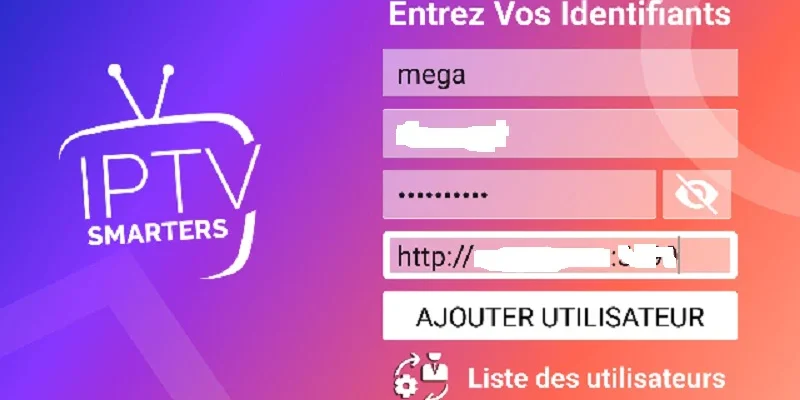In an age where streaming services and digital content are dominating the IPTV France entertainment landscape, IPTV (Internet Protocol Television) has emerged as a powerful force, transforming the way we consume television. IPTV leverages internet protocols to deliver television programming through an internet connection, instead of the traditional satellite, cable, or terrestrial systems. This article explores what IPTV is, how it works, and the many benefits it brings to viewers.
What is IPTV?
IPTV stands for Internet Protocol Television, which is the method of delivering television content through an internet connection rather than through conventional broadcast systems. Unlike traditional TV signals that rely on coaxial cables, satellite dishes, or terrestrial towers, IPTV uses the internet to stream content to your TV, computer, or mobile device.
IPTV services generally consist of three main components:
- Live TV: Streaming live television programs, similar to watching a regular cable or satellite broadcast.
- Video on Demand (VOD): Users can select and watch movies or shows at their convenience.
- Time-shifted TV: Allows viewers to watch previously aired content at a later time, often with options for pausing, rewinding, or fast-forwarding.
How Does IPTV Work?
The technology behind IPTV is relatively simple but revolutionary. Content is delivered over the internet as data packets using the same internet protocol (IP) that powers the web. When a user requests a TV program, a stream is initiated via the server, which transmits the data to the user’s device for immediate viewing.
IPTV providers usually offer content through private networks, ensuring a more stable and faster delivery compared to traditional streaming services. To access IPTV, users typically need a subscription plan, an IPTV set-top box, or an app on a smart device (like a phone, tablet, or smart TV).
Benefits of IPTV
- Flexibility and Convenience: IPTV offers the flexibility to watch your favorite shows and movies at your convenience. With VOD and time-shifting features, users are no longer bound by the rigid schedule of traditional broadcast television. The ability to pause, fast-forward, or rewind content enhances the overall viewing experience.
- Cost-Effectiveness: IPTV can be more affordable than traditional cable or satellite TV packages. Many IPTV providers offer competitive pricing, especially for viewers looking to cut the cord. This is particularly beneficial in an era when people are increasingly opting for subscription-based streaming services like Netflix or Hulu.
- Variety of Content: IPTV opens the door to a wide range of international channels, regional programming, and niche content that is not typically available through traditional broadcasting systems. Whether you’re interested in foreign languages, indie films, or specialized sports events, IPTV can provide it.
- Quality of Service: Since IPTV is delivered over private networks, it tends to offer superior image quality, especially with services providing 4K and HD streaming. The availability of high-quality streaming and minimal buffering makes IPTV a reliable alternative to traditional TV.
- Multi-Device Support: IPTV supports a wide variety of devices including televisions, smartphones, tablets, and computers. This cross-platform functionality means that users can enjoy their content on the go, at home, or anywhere there is an internet connection.
- Interactive Features: IPTV offers interactive features that traditional TV doesn’t, such as the ability to participate in voting during live shows, play games, or even interact with other viewers in real-time. Some services also allow viewers to customize their viewing experience, tailoring recommendations based on their watching habits.
IPTV vs. Traditional Television
While both traditional television and IPTV deliver video content, the way they function is fundamentally different:
- Delivery Method: Traditional TV relies on radio waves, satellite signals, or cables, while IPTV transmits content over the internet.
- Content Availability: Traditional TV is limited by channel availability and broadcast schedules, while IPTV offers a broader range of content and on-demand viewing options.
- Interactivity: IPTV supports interactive elements like pause, rewind, and VOD. Traditional TV is more static, offering limited control over the content.
Legal and Security Considerations
As with any emerging technology, IPTV does come with some challenges. One of the primary concerns is the legality of certain IPTV services. While major providers like Netflix, Hulu, and Amazon Prime Video offer legitimate IPTV services, there are also illegal IPTV services that stream copyrighted content without proper licenses. These services often come at a lower cost, but they pose significant legal risks for users.
Another challenge is security. Since IPTV relies on internet connections, users are susceptible to privacy issues and hacking attempts. To mitigate these risks, it is crucial for users to choose reputable IPTV providers, use VPNs for added security, and avoid accessing pirated content.
Future of IPTV
The future of IPTV looks promising. As internet speeds continue to improve and more people adopt fiber-optic connections, IPTV will become even more accessible and reliable. Moreover, as the demand for personalized content grows, IPTV platforms are likely to enhance their AI and machine learning capabilities, offering better recommendations and tailored experiences.
The integration of advanced technologies such as 5G and VR (Virtual Reality) could further revolutionize IPTV by providing even faster speeds and immersive viewing experiences. IPTV is expected to expand its presence across different platforms, from smart TVs and mobile devices to emerging technologies like AR glasses.
Conclusion
IPTV has undeniably revolutionized the television landscape by offering viewers more control, flexibility, and variety in their entertainment choices. As it continues to evolve and adapt to new technologies, IPTV is set to remain a central player in how we consume content, making traditional broadcast TV seem increasingly outdated. Whether you’re looking to cut the cord or simply enhance your viewing experience, IPTV is a modern, convenient, and affordable solution to the future of television.


